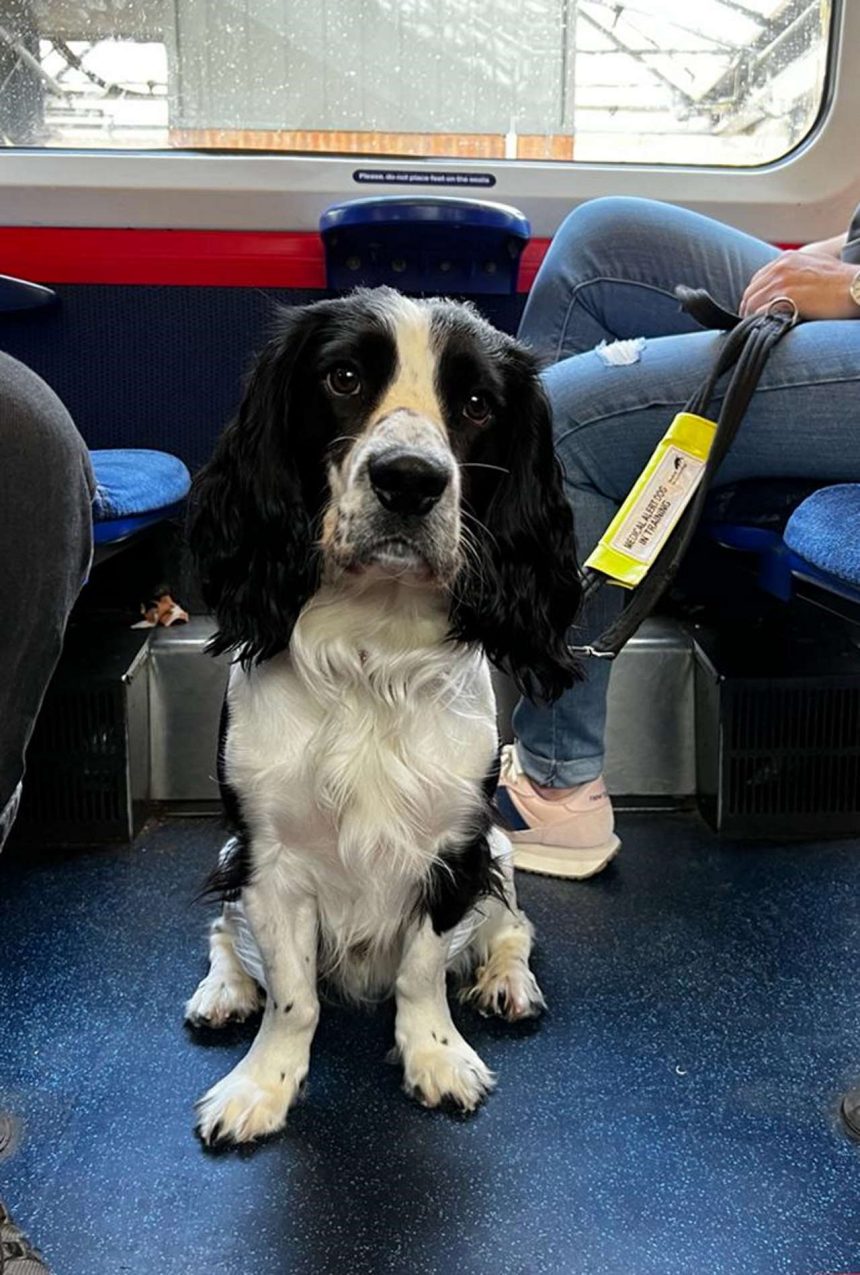In a novel way to help people with physical disabilities or mental health problems, train operators are providing them with handy laminated cards which will allow them to educate fellow passengers why their assistance dog needs to sit under an unoccupied seat.
Although simple in concept, the card should raise awareness among fellow passengers and improve the overall experience of those travelling with assistance dogs on trains. In particular, the cards will prove useful on services where seats cannot be booked in advance.
The cards were tested with charity Assistance Dogs UK, and can also act as warning for customers who are allergic to or afraid of dogs. Most assistance dogs are trained by well-known charities registered with Assistance Dogs UK.
Jacqueline Starr, Chief Executive Officer of the Rail Delivery Group, said: “We've all seen guide dogs when they are out and about supporting their visually-impaired owners. It's less well-known that many of our other four-legged friends have their own skills and character quirks that help people with a range of support needs. These include people with physical disabilities and those with autism, epilepsy or other complex health conditions.
“Many of these conditions are not visible so we want to make life easier for the people whose daily lives they affect. Being able to place the card on the seat next to them – together with the other ID the dogs carry – should achieve that on their train journeys. It will also help fellow passengers adjust to the sight of assistance dogs doing their job while apparently relaxing under a spare seat.”
Vicky Worthington, Development Manager with Assistance Dogs UK, said: “More than 7000 people rely on a highly trained assistance dog from one of our member charities alone. They enjoy the greater independence that such dogs bring, including when traveling.
“We're delighted to support this scheme and very pleased to see that rail companies are making it easier for disabled people and people with medical conditions to travel while educating the public about how these wonderful animals change – and even save – lives.”
Fiona Bower is a member of Govia Thameslink's voluntary panel of customers that represent people with a range of disabilities and access needs, and which advises on best practice. She has multiple sclerosis and has used a wheelchair for 12 years, and has travelled with her assistance dog, Mr. Wiz. on both Southern and Thameslink for six years travels.
Fiona worked with the Rail Delivery Group and Govia Thameslink in developing the scheme. She said:
“Mr Wiz, my registered assistance dog, and I welcome this new initiative which will be of tremendous benefit to all those passengers who, like me, depend on a specially trained dog to care for them.”
